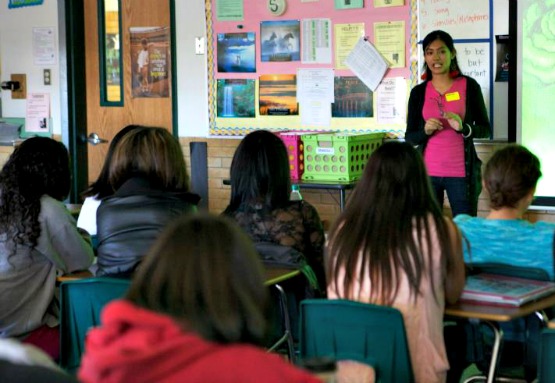As an advocate for college accessibility and a future school counselor, I am always looking for college admissions trainings to attend. The information that I learn at these trainings is imperative to the success of the low income students I work with, and I do my best to attend as many as I can to stay as up to date as possible with application changes and requirements. Recently, I decided to register for the UC High School Counselors Conference, and there were a couple of changes that immediately jumped out at me.
First off, the price for the registration increased from $60 to $95. The $95 fee includes the registration, a continental breakfast, and lunch; parking would vary by location. Secondly, they limited the number of conferences available by regions with only 4 options available: Pasadena, Oakland, San Diego, and Fresno. Previously there were 6 options available including the Inland Empire and Orange County. While the price of the conference startled me, I proceeded to pay the $95 because I understand the need to provide the students I work with the same opportunities and resources that other students might have.
Shortly after, I came to the realization that while I am currently employed as a substitute and can afford to pay for my registration and happen to live close enough to one of the four conference options, not everyone else has the same access. What about other students in counseling school who are not able to afford the almost $100 registration? What about schools who can’t sponsor the conference and are located out of the area? Doing simple math, if a school has four counselors, that’s about $400 just for registrations. If they need to travel for the conference, the cost can include additional travel fees and hotels if necessary, making the overall cost range anywhere from $100 – $200 per person. Working in a low income community, I have seen first hand the inability for some schools in affording these training for their counselors. Today with the rising cost, I can only imagine how many more counselors would be left out. In all this, I couldn’t help but question- how far have we actually progressed in making college accessible for students if we can’t even make college knowledge accessible to counselors?
In prior years, I was focused on the fact that as a system, we were denying low income students access to some of the more selective higher learning institutions because support staff lacked the proper training to help students correctly complete the lengthy and detailed applications. Today, we might have training options available, but counselors and support staff at low income communities are still potentially being denied access to these trainings because of rising cost. If only one out of the four counselors at a school attends the trainings, then there is one counselor that is appropriately prepared to support an entire graduating class. Isn’t that making it nearly impossible for the counselor to provide the necessary support to each student? Simple math again if you consider most graduating classes in comprehensive high schools consist of over 300 seniors. I can personally testify to the importance in providing tailored feedback to students in regards to this application; it is time consuming, consists of a lot of reading, and requires intensive knowledge of the intricacies to filling out a thorough college application because admissions officers are looking particular details in these applications. By increasing the cost of trainings, we are indirectly making it more difficult for low income communities to have access to these prestigious research institutions. So where does it stop? First, they tried keeping our students out, now they are trying to keep our counselors out — it’s time we stop making professional development so inaccessible to counselors simply wanting to stay in the know of the ever-competitive college admissions process.

